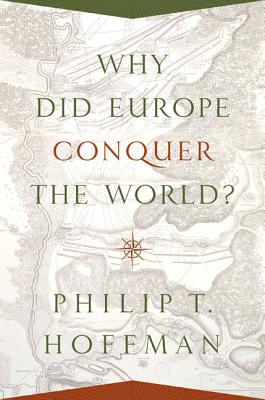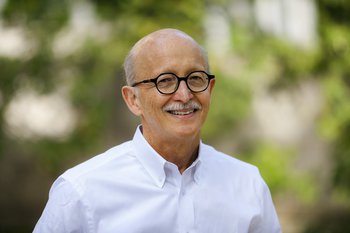

 Princeton University Press
Princeton University Press
Why Did Europe Conquer the World?


Key Metrics
- Philip T Hoffman
- Princeton University Press
- Paperback
- 9780691175843
- 9.1 X 6 X 0.8 inches
- 0.9 pounds
- History > Europe - General
- English
 Secure Transaction
Secure TransactionBook Description
The startling economic and political answers behind Europe's historical dominance
Between 1492 and 1914, Europeans conquered 84 percent of the globe. But why did Europe establish global dominance, when for centuries the Chinese, Japanese, Ottomans, and South Asians were far more advanced? In Why Did Europe Conquer the World?, Philip Hoffman demonstrates that conventional explanations--such as geography, epidemic disease, and the Industrial Revolution--fail to provide answers. Arguing instead for the pivotal role of economic and political history, Hoffman shows that if certain variables had been different, Europe would have been eclipsed, and another power could have become master of the world. Hoffman sheds light on the two millennia of economic, political, and historical changes that set European states on a distinctive path of development, military rivalry, and war. This resulted in astonishingly rapid growth in Europe's military sector, and produced an insurmountable lead in gunpowder technology. The consequences determined which states established colonial empires or ran the slave trade, and even which economies were the first to industrialize. Debunking traditional arguments, Why Did Europe Conquer the World? reveals the startling reasons behind Europe's historic global supremacy.
Author Bio
Philip Hoffman is interested in combining economic theory and historical evidence to explain long-term changes in politics, society, and the economy—in particular, economic growth and political development. His current research focuses on several areas. He's exploring why the West grew rich before other parts of the world and why it became a dominant military power.
Another area of interest is the evolution of financial institutions and their effect on economic growth. Specifically, he's trying to understand how mortgage markets developed in France and how they were affected by institutional change. Finally, Hoffman is interested in how states develop the capacity to levy taxes and provide public goods.
Hoffman was president of the Economic History Association in 2013–2014 and co-editor of the Journal of Economic History from 2006 to 2010, and he will become the incoming president of the Social Science History Association in 2019. He has been a visiting professor at the Ecole des Hautes Etudes en Sciences Sociales in France, a visiting researcher at the Paris School of Economics (2011), and a visiting professor at the Hong Kong University of Science and Technology (2013).
In addition to numerous articles, he has written six books and edited two.
He has won the Gyorgy Ranki Biennial Prize from the Economic History Association twice, for Priceless Markets: The Political Economy of Credit in Paris, 1660–1870 (2001) and for Growth in a Traditional Society: The French Countryside, 1450–1815 (1997), which was also awarded the Allan Sharlin Memorial Award from the Social Science History Association. In addition to receiving other prizes for his books and articles, he was a John Simon Guggenheim Fellow in 2001.
- Education
- A.B., Harvard College, 1969;
- M.A., University of California, 1971;
- Ph.D., Yale University, 1979.
- Lecturer in History, Caltech, 1980-81; Instructor, 1981-82; Assistant Professor, 1982-84;
- Associate Professor of History and Social Science, 1984-95;
- Professor, 1995-2003;
- Richard and Barbara Rosenberg Professor of History and Social Science, 2003-08;
- Axline Professor, 2008-. Executive Officer for the Humanities, 1995-2000.
- Research Interests
- Economic History of Europe and the World; Economic Development; Institutional Change
Source: California Institute of Technology Division of The Humanities and Social Sciences
Videos
No Videos
Community reviews
Write a ReviewNo Community reviews